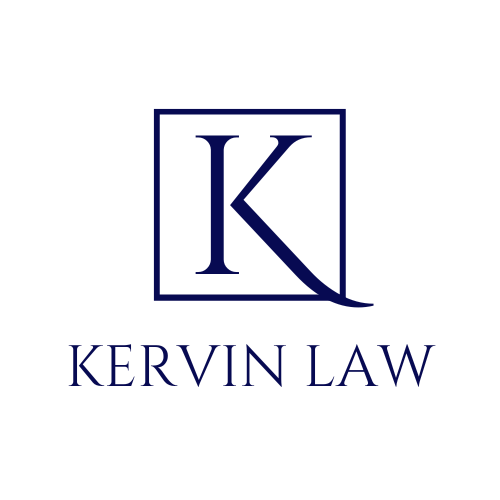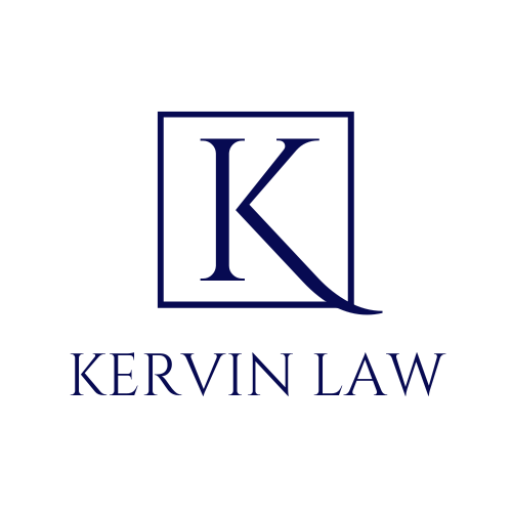Call Kervin Law at 985-888-0640 to speak to a Louisiana debt collection lawyer.
I have many years of experience helping small businesses and banks collect debts all over the state of Louisiana. I’ve had debt collection cases in Shreveport and in New Orleans on both big and small debts. Whether it’s a consumer debt or a business debt, we can help!
How do you charge?
It really depends on the case and the clients. We can work at a reasonable hourly rate and sometimes on a contingency fee. We have had success in both kinds of arrangements.
What are the Louisiana laws regarding debt collection?
Louisiana, like all states, has specific laws governing debt collection practices. These laws are designed to protect consumers from unfair and abusive practices while ensuring that creditors have a legal avenue to collect debts. Here are key aspects of Louisiana’s laws regarding debt collection:
1. Louisiana Collection Agency Regulation Act
- Licensing: Collection agencies operating in Louisiana must be licensed by the state. The Office of Financial Institutions oversees the licensing and regulation of these agencies.
- Bond Requirement: Collection agencies are required to post a bond as part of the licensing process.
2. Fair Debt Collection Practices Act (FDCPA)
- Compliance: While the FDCPA is a federal law, it applies to debt collectors operating in Louisiana. It sets standards for how debt collectors can interact with consumers, including prohibitions on harassment, false statements, and unfair practices.
- Communication Restrictions: Debt collectors must adhere to rules about when and how they can contact debtors, including avoiding calls at unreasonable hours and honoring requests to cease communication.
How long do you have to due on a debt in Louisiana?
Prescription Period (Statute of Limitations)
- Open Accounts: The statute of limitations for open accounts, such as credit card debt, is three years in Louisiana. This means that creditors must file a lawsuit within three years of the debtor’s last payment or acknowledgment of the debt.
- Written Contracts: For debts based on written contracts, the statute of limitations is ten years.
- Promissory Notes: The statute of limitations for promissory notes is five years.
How do you enforce a judgment?
Wage Garnishment: Louisiana law allows for wage garnishment but limits the amount that can be garnished to 25% of the debtor’s disposable earnings or the amount by which weekly earnings exceed 30 times the federal minimum wage, whichever is less.
Property Liens: Creditors can place liens on a debtor’s property if they obtain a judgment in court.
Bank Account Levies: Creditors can also levy a debtor’s bank account after obtaining a judgment.
What are exemptions to debt collection in Louisiana?
- Homestead Exemption: Louisiana has a homestead exemption that protects up to $35,000 of a debtor’s home equity from seizure.
- Personal Property: Certain personal property is exempt from seizure under Louisiana law, including specific amounts of clothing, household furniture, and tools of the trade.
Are there usury laws in Louisiana?
Yes. 12% is the maximum interest rate.
How do you collect consumer debt?
1. Communication with the Debtor
- Initial Contact: Reach out to the debtor through phone calls, emails, or letters to remind them of the outstanding debt. Be polite and professional.
- Negotiation: Discuss possible payment plans or settlements. Offer options like partial payments, extended deadlines, or reduced lump-sum settlements to make repayment easier for the debtor.
2. Documentation
- Record Keeping: Maintain detailed records of all communications with the debtor, including dates, times, and summaries of conversations.
- Debt Verification: Ensure you have all necessary documentation proving the debt, including contracts, account statements, and any correspondence.
3. Follow Legal Guidelines
- Fair Debt Collection Practices Act (FDCPA): Comply with federal regulations that govern debt collection practices to avoid harassment or unfair practices.
- State Laws: Be aware of and comply with state-specific laws regarding debt collection.
4. Formal Demand Letters
- Written Notice: Send a formal demand letter outlining the debt, the amount due, and any consequences of non-payment. This serves as a formal reminder and can also be a precursor to legal action.
5. Engage a Collection Agency
- Third-Party Collectors: If initial efforts fail, consider hiring a professional collection agency. They have the expertise and resources to handle difficult cases.
- Fees and Commissions: Be aware that collection agencies typically charge a fee or commission for their services.
6. Legal Action
- Small Claims Court: For smaller debts, filing a claim in small claims court might be a viable option.
- Civil Lawsuit: For larger debts, consider filing a lawsuit. If successful, you can obtain a judgment against the debtor, which may include wage garnishment, property liens, or bank account levies.
7. Post-Judgment Collection
- Enforcement of Judgment: Once you have a judgment, take steps to enforce it. This can include wage garnishment, placing liens on property, or seizing assets.
- Continuous Monitoring: Monitor the debtor’s financial situation for opportunities to collect the debt over time.
8. Settlement Offers
- Lump-Sum Settlements: Offer the debtor the opportunity to settle the debt for a lump-sum payment that is less than the total amount owed.
- Payment Plans: Agree on a payment plan that allows the debtor to pay off the debt in installments.
9. Credit Reporting
- Credit Bureau Reporting: Report the delinquent debt to credit bureaus. This can incentivize the debtor to pay off the debt to avoid damaging their credit score.
10. Write-Offs
- Charge-Off: As a last resort, if the debt is uncollectible, consider writing it off as a bad debt. This can provide some tax benefits but typically means you cease further collection efforts.
By following these steps, you can systematically and legally pursue the collection of consumer debt while maintaining professionalism and compliance with relevant laws and regulations.
How do you collect business debt?
Collecting business debt involves a process that is somewhat similar to collecting consumer debt but often includes additional considerations due to the nature of business-to-business (B2B) relationships. Here’s a comprehensive guide to help you collect business debt effectively:
1. Initial Communication
- Polite Reminder: Start with a polite reminder to the business about the outstanding debt through phone calls, emails, or letters. Maintain a professional tone.
- Follow-Up: If there is no response, follow up with additional reminders. Escalate the tone of urgency gradually in your communications.
2. Verification and Documentation
- Invoice Verification: Ensure that all invoices are correct and have been delivered to the right person or department within the business.
- Record Keeping: Maintain detailed records of all communications, agreements, and transactions related to the debt.
3. Negotiation
- Payment Plans: Discuss possible payment plans or restructuring of the debt if the business is experiencing cash flow problems.
- Settlements: Offer to settle the debt for a lump sum that is less than the total amount owed if immediate payment is feasible for the debtor.
4. Legal Compliance
- Understand Regulations: Be aware of relevant laws governing business debt collection, which may differ from consumer debt collection laws.
- Contract Review: Review the original contract or agreement to understand your rights and obligations.
5. Formal Demand Letters
- Demand Letter: Send a formal demand letter outlining the debt, the amount due, and the deadline for payment. Clearly state the potential consequences of non-payment, such as legal action.
6. Engage a Collection Agency
- Professional Collectors: Consider hiring a collection agency that specializes in business debt if initial collection efforts are unsuccessful.
- Terms of Service: Understand the terms, fees, and commissions associated with using a collection agency.
7. Legal Action
- Mediation or Arbitration: If there is a dispute, consider mediation or arbitration to resolve the issue without going to court.
- Lawsuit: If necessary, file a lawsuit to obtain a judgment against the debtor. This may involve hiring a lawyer who specializes in commercial debt collection.
8. Post-Judgment Collection
- Enforcement of Judgment: Once a judgment is obtained, enforce it through methods such as garnishing bank accounts, placing liens on property, or seizing assets.
- Continuous Monitoring: Keep track of the debtor’s financial situation for opportunities to collect the debt over time.
9. Credit Reporting
- Credit Bureaus: Report the delinquent debt to commercial credit bureaus. This can affect the debtor’s credit rating and incentivize payment.
10. Settlement Offers
- Lump-Sum Settlements: Offer the debtor a chance to settle the debt for a lump-sum payment.
- Structured Payments: Agree on a structured payment plan that suits both parties.
11. Write-Offs
- Bad Debt Write-Off: As a last resort, write off the debt as a bad debt if it is deemed uncollectible. This can provide some tax benefits but typically means ending further collection efforts.
12. Maintaining Relationships
- Professionalism: Throughout the process, maintain professionalism to preserve business relationships, especially if there is potential for future business.
- Customer Retention: In some cases, it may be beneficial to negotiate terms that allow the debtor to continue as a customer while gradually paying off the debt.
By following these steps, you can approach business debt collection methodically, ensuring that your efforts are both effective and compliant with legal requirements.
What are the key requirements for debt collectors?
- Communication
- Hours: Contact is generally allowed only between 8 a.m. and 9 p.m.
- Frequency: No excessive or harassing phone calls.
- Cease Communication: Must stop communication if the debtor requests in writing.
- Validation Notice
- Initial Notice: Within 5 days of the first contact, the collector must send a written notice detailing the debt.
- Dispute Rights: Inform the debtor of their right to dispute the debt within 30 days.
- Prohibited Conduct
- False Representation: Misleading statements about the debt, collector’s identity, or legal status.
- Unfair Practices: Charging unauthorized fees, threats of violence, or use of profane language.
Kervin Law can help with your debt collection needs. Call 985-888-0640 to discuss how we can help you.


